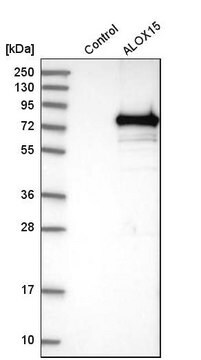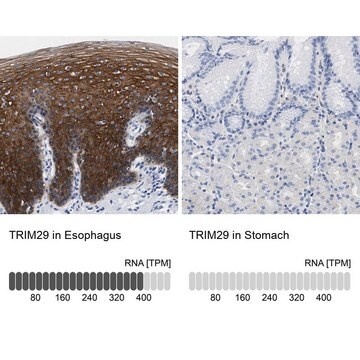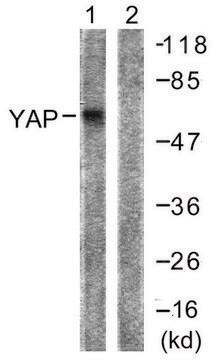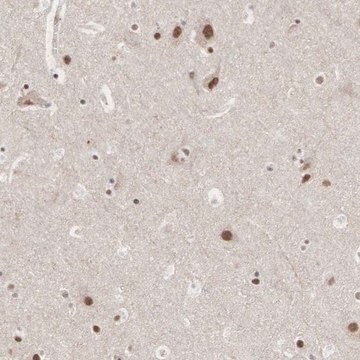SAB1404823
Monoclonal Anti-YAP1 antibody produced in mouse
clone 2H1, purified immunoglobulin, buffered aqueous solution
Synonyme(s) :
YAP, YAP2, YAP65, YKI
About This Item
Produits recommandés
Source biologique
mouse
Conjugué
unconjugated
Forme d'anticorps
purified immunoglobulin
Type de produit anticorps
primary antibodies
Clone
2H1, monoclonal
Forme
buffered aqueous solution
Poids mol.
antigen ~38.1 kDa
Espèces réactives
human
Technique(s)
capture ELISA: suitable
immunohistochemistry (formalin-fixed, paraffin-embedded sections): suitable
indirect ELISA: suitable
indirect immunofluorescence: suitable
western blot: 1-5 μg/mL
Isotype
IgG2aκ
Numéro d'accès NCBI
Numéro d'accès UniProt
Conditions d'expédition
dry ice
Température de stockage
−20°C
Modification post-traductionnelle de la cible
unmodified
Informations sur le gène
human ... YAP1(10413)
Catégories apparentées
Description générale
Immunogène
Sequence
QIVHVRGDSETDLEALFNAVMNPKTANVPQTVPMRLRKLPDSFFKPPEPKSHSRQASTDAGTAGALTPQHVRAHSSPASLQLGAVSPGTLTPTGVVSGPAATPTAQHLR
Forme physique
Clause de non-responsabilité
Vous ne trouvez pas le bon produit ?
Essayez notre Outil de sélection de produits.
En option
Code de la classe de stockage
11 - Combustible Solids
Classe de danger pour l'eau (WGK)
WGK 1
Point d'éclair (°F)
Not applicable
Point d'éclair (°C)
Not applicable
Certificats d'analyse (COA)
Recherchez un Certificats d'analyse (COA) en saisissant le numéro de lot du produit. Les numéros de lot figurent sur l'étiquette du produit après les mots "Lot" ou "Batch".
Déjà en possession de ce produit ?
Retrouvez la documentation relative aux produits que vous avez récemment achetés dans la Bibliothèque de documents.
Notre équipe de scientifiques dispose d'une expérience dans tous les secteurs de la recherche, notamment en sciences de la vie, science des matériaux, synthèse chimique, chromatographie, analyse et dans de nombreux autres domaines..
Contacter notre Service technique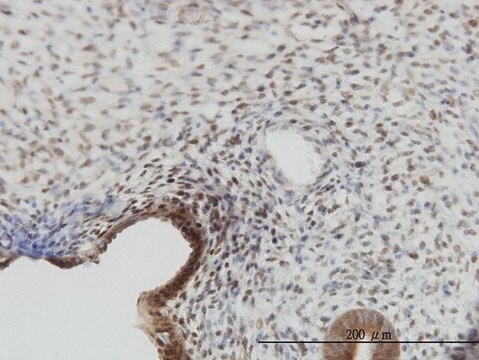
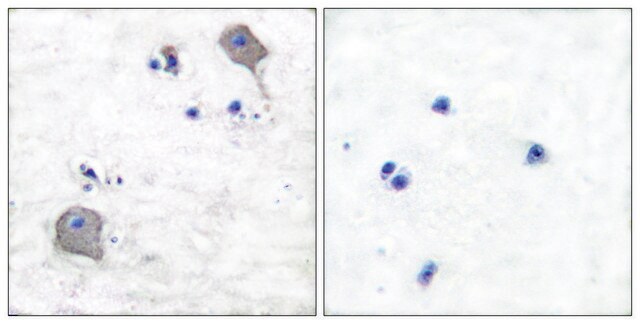
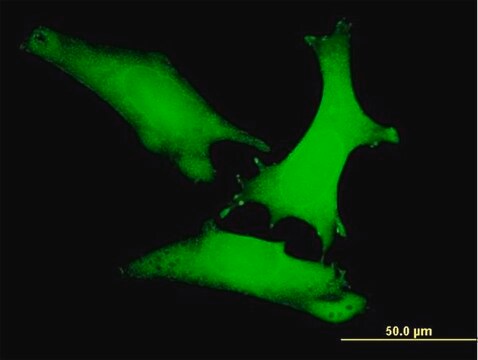
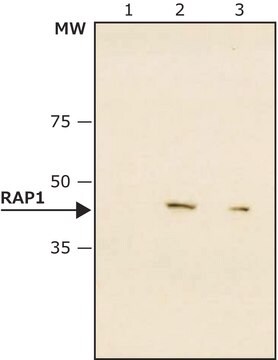
![Anti-CD62E [ELAM-1] Antibody, clone 1.2B6 clone 1.2B6, from mouse](/deepweb/assets/sigmaaldrich/product/images/224/939/8a711839-25ef-4e45-badd-208503950c8a/640/8a711839-25ef-4e45-badd-208503950c8a.jpg)
